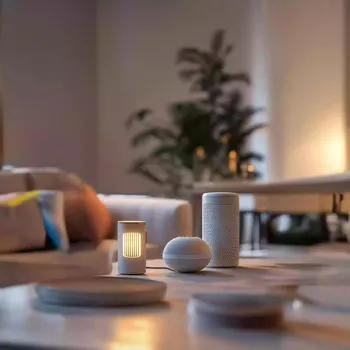Unlock the Secrets to Healthy Aging: 10 Tips for a Vibrant Life in Your Golden Years. Dive into science-backed advice for a fulfilling future!
New Delhi: As we all know, time moves on for everyone, and
eventually, we reach our golden years. But getting older doesn't mean we have to slow down or lose our zest for life.

Science is actually telling us a lot about aging – how it happens and what we can do to make sure our later years are healthy ones. It’s not about stopping aging; rather, it's about aging well, feeling good, and staying active.
This article brings you 10 easy-to-follow tips that can help you embrace your golden years with a smile and maintain a vibrant and fulfilling lifestyle. Think of these as your personal guide to enjoying life, no matter your age.
Eat a Colorful Diet:
Your plate should look like a rainbow! Load up on fruits and vegetables of all colours. These are full of vitamins, minerals, and antioxidants that protect your body from damage and keep your immune system strong.
Think of bright red tomatoes, deep green spinach, sunny yellow mangoes, and vibrant purple brinjals. Try to cook your own meals as far as possible this ways you know which ingredients you are adding. You can control the amount of salt, sugar and oil, making it healthier for you.
Include whole grains like brown rice and whole wheat roti for sustained energy. Remember, it's important to stay hydrated, so drink plenty of water throughout the day. Avoid processed foods, sugary drinks, and excessive amounts of salt. These can harm your health and speed up the aging process.
Eating a balanced diet is not just about preventing illness, it’s about feeling energized, maintaining your weight, and keeping your mind sharp. A well-nourished body is a resilient body, better equipped to handle the challenges that may come with age.
Don’t fall for fad diets or overly restrictive eating plans. Focus on creating a sustainable, enjoyable eating pattern that you can maintain for the long term.
Stay Active, Stay Young:
Exercise is like a magic potion for your body and mind. It keeps your muscles strong, your bones dense, and your heart healthy. You don't have to run a marathon; even a brisk walk every day can make a big difference. There are many easy ways to incorporate movement into your daily routine.

Take the stairs instead of the lift, dance to your favorite music, or join a yoga class. Find an activity you enjoy, and you'll be more likely to stick with it. Gardening, swimming, and cycling are also great options. Regular exercise can also help improve your mood, sleep, and cognitive function.
It helps you stay independent and maintain your balance, reducing the risk of falls. It is essential to talk to your doctor before starting any new exercise plan, especially if you have any underlying health conditions.
Start slowly and gradually increase the intensity and duration of your workouts. Remember to listen to your body and take rest days when needed. Exercise is not just about looking good; it’s about feeling good, both physically and mentally.
It's an investment in your health and well-being that will pay dividends for years to come.
Sleep Well, Live Well:
Sleep is not a luxury; it's a necessity. When you sleep, your body repairs itself, your mind clears, and your energy levels replenish. Aim for 7-8 hours of quality sleep each night. To improve your sleep habits, create a relaxing bedtime routine.

Take a warm bath, read a book, or listen to calming music. Make sure your bedroom is dark, quiet, and cool. Avoid caffeine and alcohol before bed, as these can interfere with sleep.
If you have trouble sleeping, talk to your doctor or consider trying relaxation techniques like meditation or deep breathing exercises. Good sleep is essential for maintaining a healthy immune system, improving concentration, and boosting your mood.
It also helps regulate your hormones and prevent chronic diseases. Making sleep a priority is one of the best things you can do for your overall health and well-being as you age. Don't underestimate the power of a good night's rest.
It's a simple yet effective way to feel refreshed, energized, and ready to take on the day.
Sharpen Your Mind:
Just like your body, your brain needs exercise too. Keep your mind active by learning new things, solving puzzles, reading books, or playing games. There are many ways to stimulate your brain and keep it sharp. Take an online course, join a book club, or learn a new language.
Engaging in mentally stimulating activities can help improve memory, focus, and cognitive function. It can also reduce the risk of age-related cognitive decline. Social interaction is also important for brain health.
Spend time with friends and family, participate in community activities, or volunteer your time. Staying connected to others can help keep your mind engaged and prevent isolation. Don't be afraid to challenge yourself intellectually. Embrace new experiences and step outside of your comfort zone.
Lifelong learning is not only enriching but also beneficial for your brain health. Whether it's learning to play a musical instrument, mastering a new skill, or simply reading a good book, keep your mind active and engaged.
Manage Stress Wisely:
Stress is a part of life, but chronic stress can take a toll on your health. Find healthy ways to manage stress, such as meditation, yoga, or spending time in nature. Deep breathing exercises can also help you relax and calm your mind.

Cultivate positive relationships and seek support from friends and family. Talking to someone you trust can help you process your emotions and reduce feelings of stress and anxiety. It's important to identify the sources of stress in your life and try to minimize them.
Learn to say no to commitments that overwhelm you and prioritize activities that bring you joy and relaxation. Consider seeking professional help if you are struggling to manage stress on your own.
A therapist or counselor can provide you with tools and strategies to cope with stress in a healthy way. Managing stress is not just about feeling better in the moment; it's about protecting your long-term health.
Chronic stress can weaken your immune system, increase your risk of heart disease, and contribute to other health problems.
Regular Health Check-ups:
Prevention is better than cure. Get regular health check-ups to detect any potential health problems early on. Your doctor can help you monitor your blood pressure, cholesterol levels, blood sugar, and other important health markers.

Follow your doctor's recommendations for screenings and vaccinations. Early detection and treatment of health problems can improve your chances of a successful outcome. It's also important to be aware of any changes in your body and report them to your doctor promptly.
Don't ignore symptoms or delay seeking medical attention. Regular health check-ups are an essential part of maintaining your health and well-being as you age. They can help you identify and address health issues before they become more serious.
Take an active role in your healthcare by asking questions, expressing your concerns, and following your doctor's advice. Keeping track of your health is not just about preventing illness; it's about empowering yourself to live a long and healthy life.
Stay Connected Socially:
Humans are social creatures, and social connection is vital for our health and well-being. Spend time with loved ones, join social groups, or volunteer in your community. Staying connected to others can help prevent feelings of loneliness and isolation.
It can also improve your mood, reduce stress, and boost your immune system. Make an effort to maintain your relationships and nurture new ones. Reach out to friends and family regularly, even if it's just for a quick chat.
Participate in social activities that you enjoy, such as hobbies, sports, or cultural events. Volunteering is also a great way to connect with others and make a difference in your community. It can provide you with a sense of purpose and fulfillment.
Don't underestimate the power of social connection. It's an essential ingredient for a happy and healthy life, especially as you age.
Limit Alcohol and Don't Smoke:
Smoking and excessive alcohol consumption are harmful to your health at any age, but they are especially detrimental as you get older. Smoking increases your risk of heart disease, lung cancer, and other serious health problems. Alcohol abuse can damage your liver, brain, and other organs.
If you smoke, quit. There are many resources available to help you quit smoking, including support groups, nicotine replacement therapy, and medication. If you drink alcohol, do so in moderation.
For most adults, this means no more than one drink per day for women and no more than two drinks per day for men. Limiting alcohol and not smoking.
Protect your Skin:
As we age, our skin becomes more vulnerable to sun damage and dryness. Protect your skin by wearing sunscreen every day, even on cloudy days. Use a broad-spectrum sunscreen with an SPF of 30 or higher. Wear protective clothing, such as hats and long sleeves, when you are outdoors.

Moisturize your skin regularly to prevent dryness and irritation. Choose a moisturizer that is appropriate for your skin type. Avoid harsh soaps and cleansers that can strip your skin of its natural oils.
Protecting your skin is not just about looking good; it's about preventing skin cancer and other skin problems. Regular skin exams can help detect skin cancer early, when it is most treatable. If you notice any changes in your skin, such as new moles or growths, see a dermatologist.
Embrace Positivity:
A positive attitude can make a big difference in your overall health and well-being. Focus on the good things in your life and practice gratitude. Surround yourself with positive people and avoid negativity. Find things that make you laugh and bring you joy.

Cultivate a sense of purpose and meaning in your life. A positive attitude can help you cope with stress, improve your mood, and boost your immune system. It can also help you live longer and healthier. Try to reframe negative thoughts and focus on solutions rather than problems.
Practice self-compassion and be kind to yourself. Remember that aging is a natural part of life, and it can be a time of great joy and fulfillment. Embrace the opportunities to learn learn, grow, and connect with others.
Maintain good emotional wellbeing/mental health while you practice these guidelines for wellbeing and health.
AI Generated Content. Glance/InMobi shall have no liability for the content











